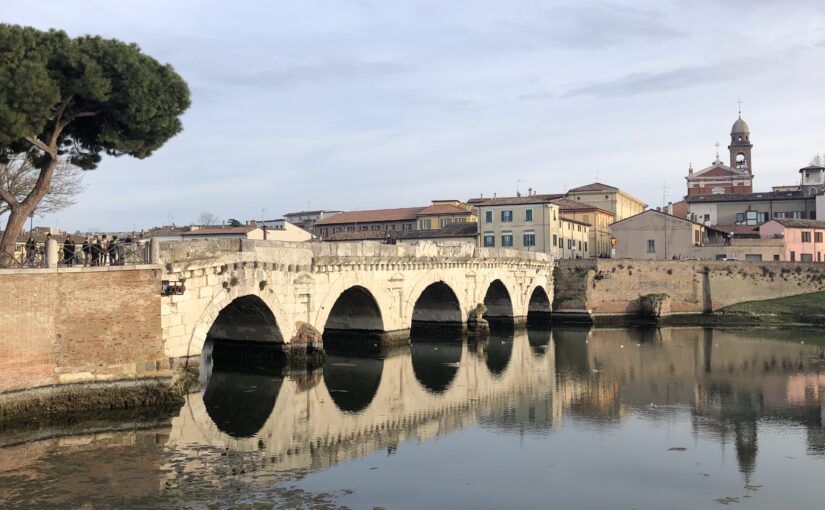Field of study in Wageningen: Management and Consumer Studies
Study period exchange: 01/02/2023 – 01/07/2023
Country (exchange): Italy
City (exchange): Rimini
University (exchange): University of Bologna
Faculty (exchange): Economics (1) and Fashion (2)
2. Motivation for exchange
Why did you choose to go on study exchange?
It sounds a bit cheesy but to me it felt a bit like a once in a life time opportunity. There will be no moment in your life that allows you to explore a different country, culture, university, surroundings, in such an easy and accessible way.
What is the reason you chose for this country/university?
Initially my reasons for choosing Italy were not very profound. I choose to go on study exchange for the experience, not for the level and/or quality of the education. Thus, I choose a country which is known for their beauty, food, and pleasure. A country with a different speed in life than the Netherlands. Rimini in particular wasn’t my first choice. However, looking back, I really enjoyed my time there, and it gave me enough opportunity to experience the Italian culture.
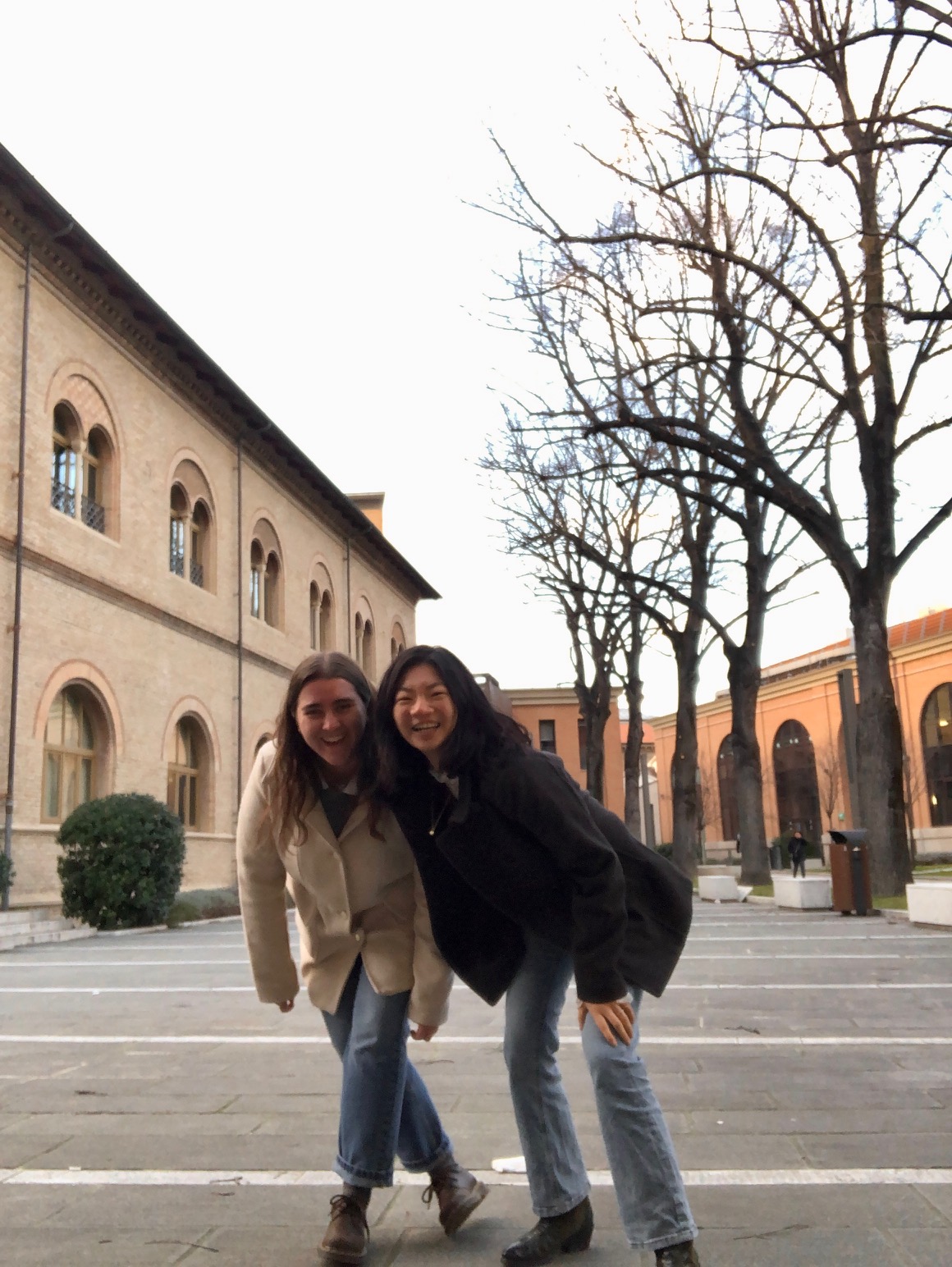
3. Accessibility to reach destination
Do you have any tips to reach your exchange destination?
The easiest way is definitely the plane, first to Bologna, and then the train to Rimini. However, I went by train (18 hours). Something I would definitely recommend. First of all, it’s good for the environment, which also means you get a Green Travel Fund (50 euros). Secondly, it’s not like you’re going on vacation and it would therefore be a waste of time to spend so much hours on the travels instead of the stay. At the beginning, you have a lot of time. Thus, the duration of your travels doesn’t matter that much.
4. University and studying
Could you provide some general information about the followed courses?
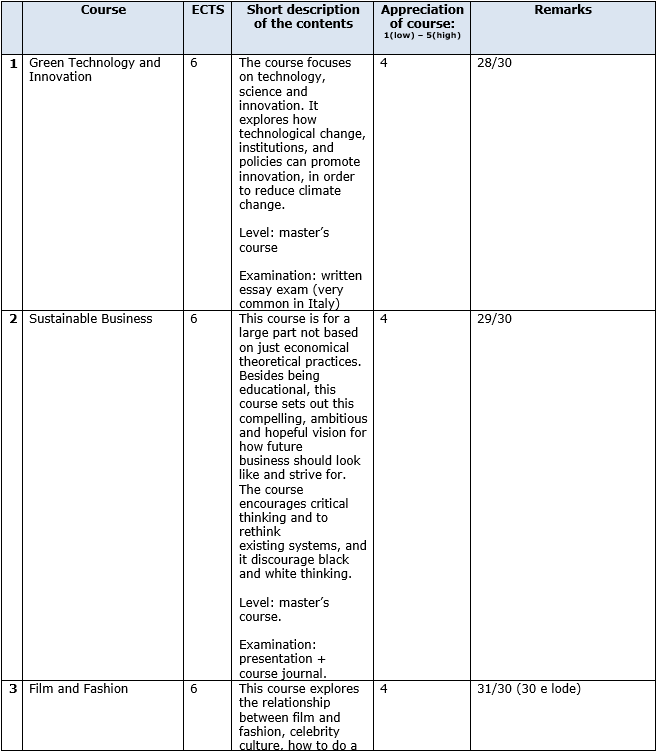
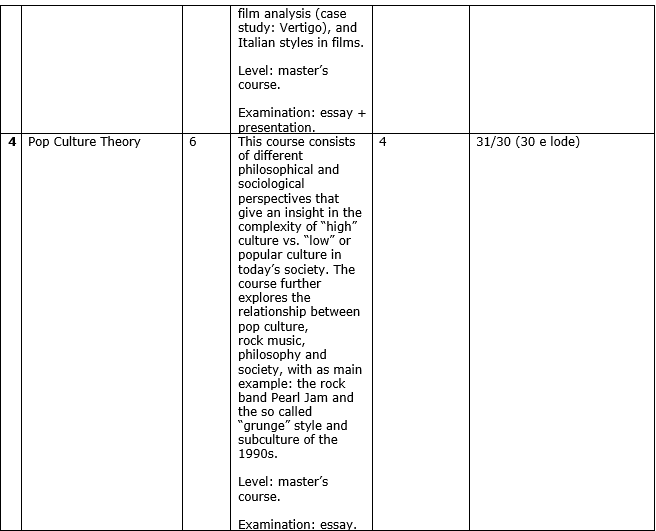 How is the study formalized?
How is the study formalized?
The number of students is lower than in Wageningen: 10-30.
Academic level: I expected it to be very low, but actually is was pretty okay. Still not difficult, especially not the examination and the strictness of grading. However, the content of the course had the same academic level as in Wageningen bachelor’s. Except for Film and Fashion, the academic level was low.
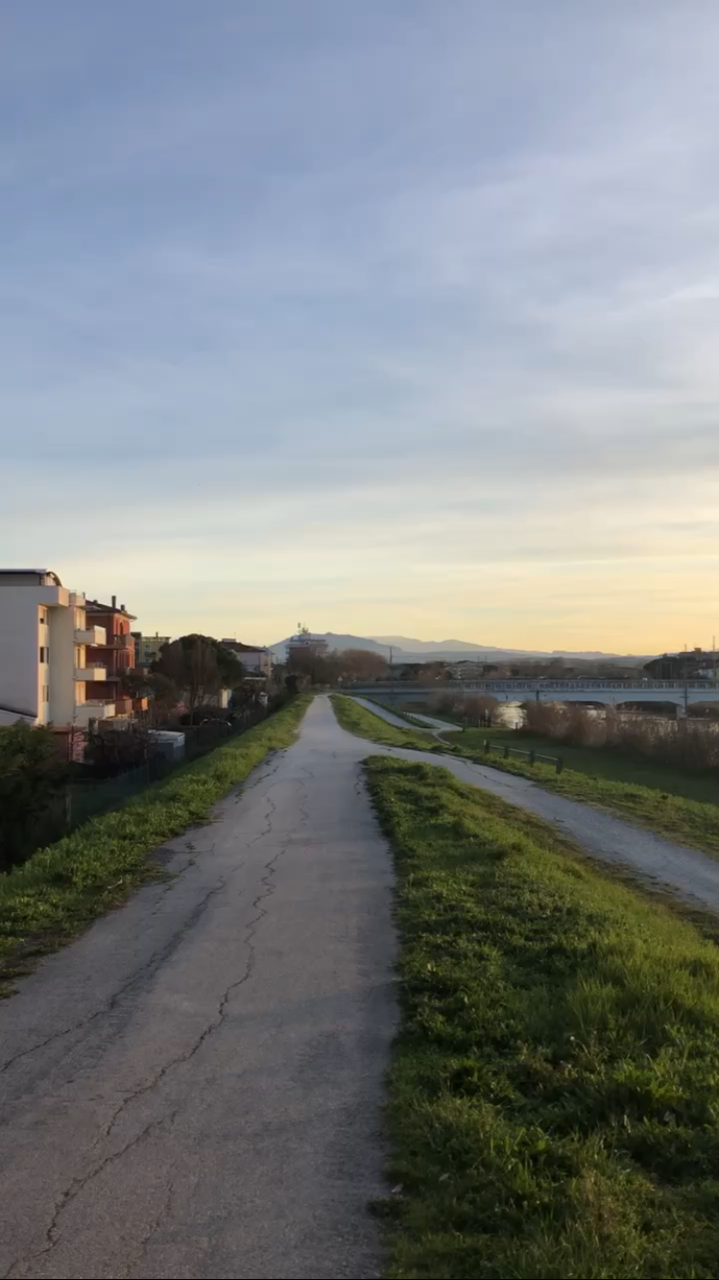
Examination: for both the fashion courses I had to write an essay between 5-10 pages. If it is a written exam, it is often an essay exam. This means that the exam consists of two specific questions, and every question requires one A4 page long answer (duration 30-60 min.). In short, the written exams doesn’t cover the whole content of the course, not even close. Sometimes this is very nice and can be beneficial for you, but it also makes it more a gamble.
Workload: not high. Lectures can be very long, but afterwards you don’t have to do much, a lot of it is self-study.
Lesson material: same as in Wageningen which means PowerPoint slides, scientific articles, books, guest lectures.
Campus: there are three locations, all in the city centre, and from walking distance from each other + university library. There is also a city library.
What is the culture of the university?
The way of teaching: it is very chill, approachable, and not strict. Especially time table wise, it’s not set in stone, you can negotiate and discuss with the teacher. The classes itself are often more interactive than in Wageningen, this is very Italian and the small class sizes also allows for this. Classes and exams can start up until 15 minutes later. There is an old tradition in Rimini: classes start 15 minutes later and end 15 minutes earlier than what is stated in the time table.
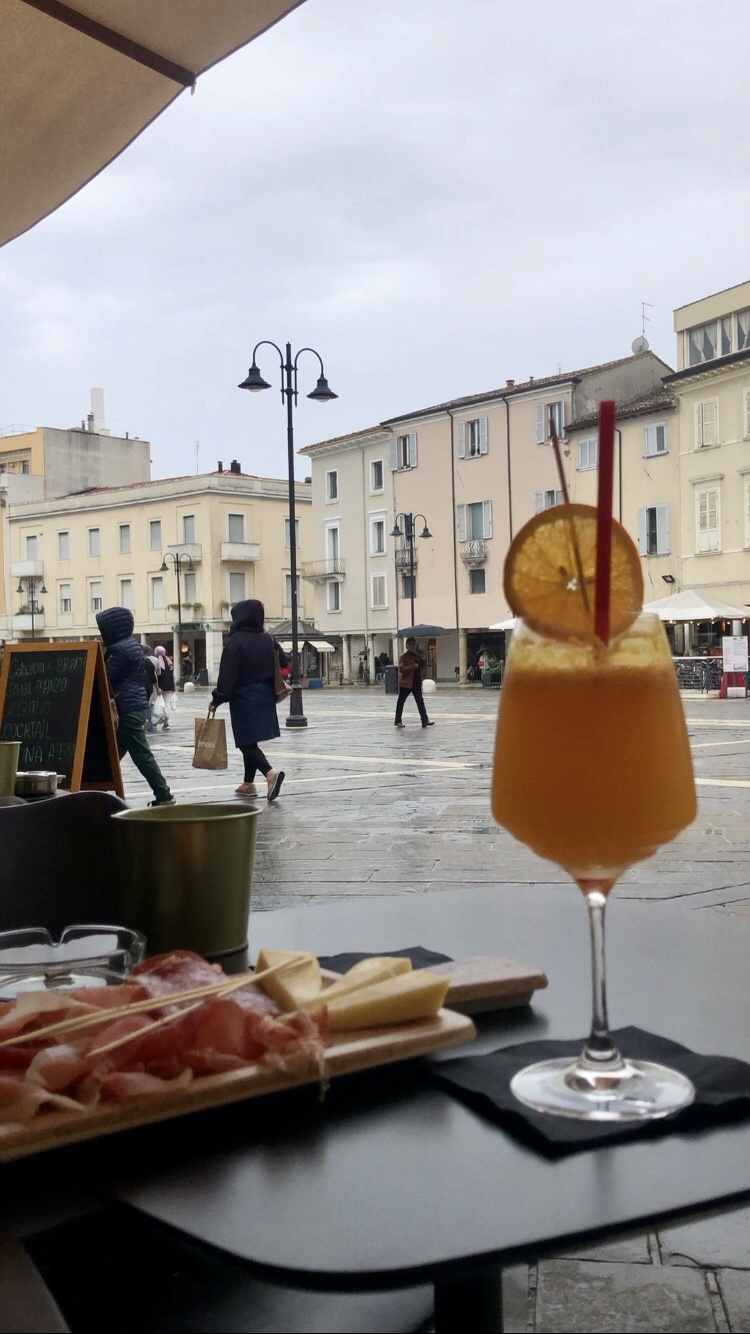 Engagement with local students: I noticed Italian students are very open and kind. They included me a lot in conversations and social activities outside the university. This is something I didn’t expect, especially because in Wageningen where there is a big division, and not a lot of interaction between local and international students.
Engagement with local students: I noticed Italian students are very open and kind. They included me a lot in conversations and social activities outside the university. This is something I didn’t expect, especially because in Wageningen where there is a big division, and not a lot of interaction between local and international students.
I really liked the culture of the university, it was very Italian: chill, approachable, open, inviting, helpful.
What does the university offer the student additionally?
There is a computer room where you can sit and study, and print (first 100 pages for free).
There is a university library, also here there are a few computers to use.
There is also a city library (very nice!).
There is also a canteen, various menus ranging between 2 and 9 euros (also nice!).
There is a coffee bar very close to the university, all students go here for coffee. But in general, there are a lot of places to go eat or drink, all from walking distance to the campus.
They also offer sport facilities. You have to take a health test (30 euros), and then you can take various classes just like at the Bongerd (e.g. the gym or yoga).
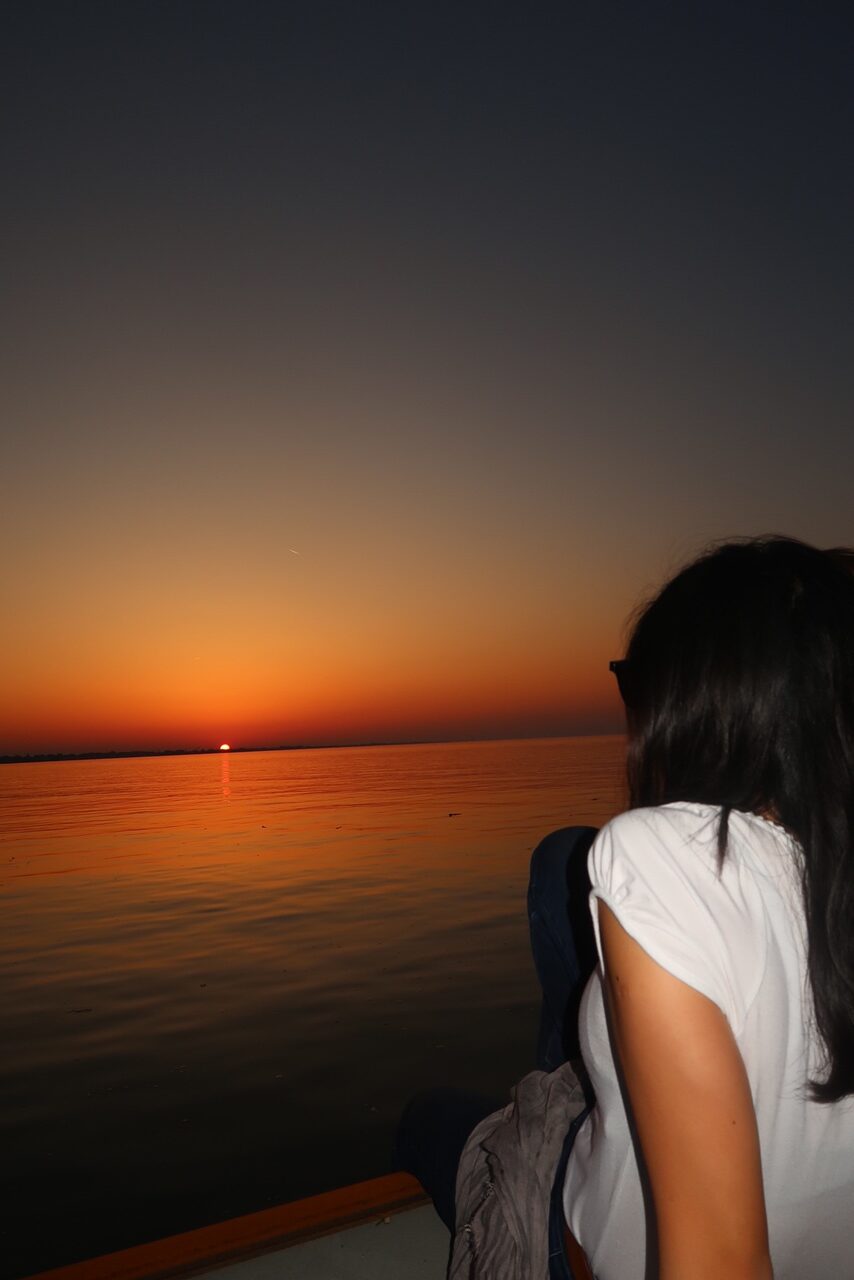
5. Housing-travelling-living
What are the possibilities for housing?
Residence Delfina: info@residencedelfina.it.
As back-up: Sunflower city hostel. It sounds a bit weird, but they offer room rent for multiple months. I knew a lot of exchange students who rented a room here.
Erasmus House, Igino Righetti: erasmushouse@diapason.rimini.it. You need to be quick with this one!
Eventually I got my room via a text message I send in the ESN Rimini WhatsApp groupchat. I really recommend doing this! I found an apartment which is rented by an old couple: Madeleine and Mario, and they rent every half year the upper part of their house for female Erasmus students (three in total).
Facebook Rimini Group is also an option. However, I would not choose this as first option. Since you have to be careful with scams, and the chances are higher on this platform.
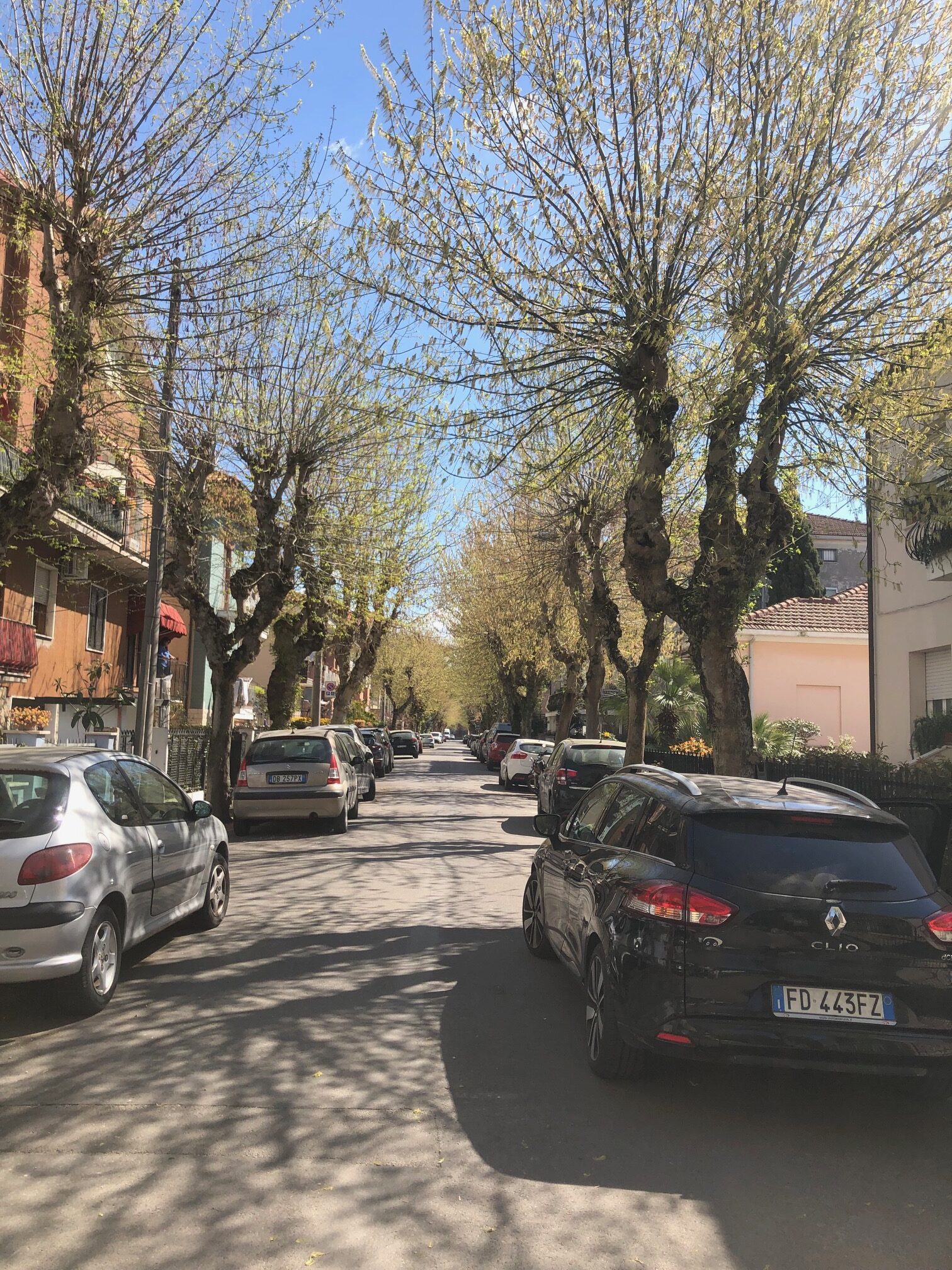
What is the culture of the country like?
I really lived the Italian lifestyle of ‘la dolce vita’ and ‘il dolce far niente’. Everything was very ‘tranquillo’ and ‘hakuna matata’; it was calm, peaceful, no worries, take it easy vibes. In short, my life was very spontaneous. In Wageningen my social life is planned out three weeks in advanced. In Rimini, I lived day by day, very much ‘living in the moment’.
A normal day for me starts with a cappuccino somewhere in the city centre (coffee is very cheap!), sometimes a brioche (that’s how it’s called in Emilia-Romagna, the province of Rimini), but in other places of Italy it’s also called cornetto. It’s actually a sweet croissant with a filling such as pistachio (recommended!). Then I would stroll around the city or go to classes. Afterwards, I would eat with my friends at the university canteen, mostly take-away, so we can eat it in the park. Do some more strolling around the city, get an ice cream, another coffee somewhere. Sometimes a beach day: picnic, pizza beach dinner, and almost always also ice cream. In the early evenings, we often go for an aperitivo, which means going for some drinks (cocktail or wine, Italians are not big beer drinkers, although I choose a lot of times a beer….woops), and often free food (een borrelplankje) is included! Aperitivo is meant as pre-dinner, meant as a warming-up for the real dinner, which starts around eight in the evening. There are a lot of nice and cute restaurant to go to for dinner (I did this a lot….woops). At night in the winter, we went sometimes to bars in the city centre, this way of going out is not really my thing: the bar is super small, some people dance inside (coat always on because it can get stolen), and most of the people go out of the bar with their drinks and talk. This way of going out is also common in Spain. At night in the summer is a lot better, rooftop parties and parties at the beach.
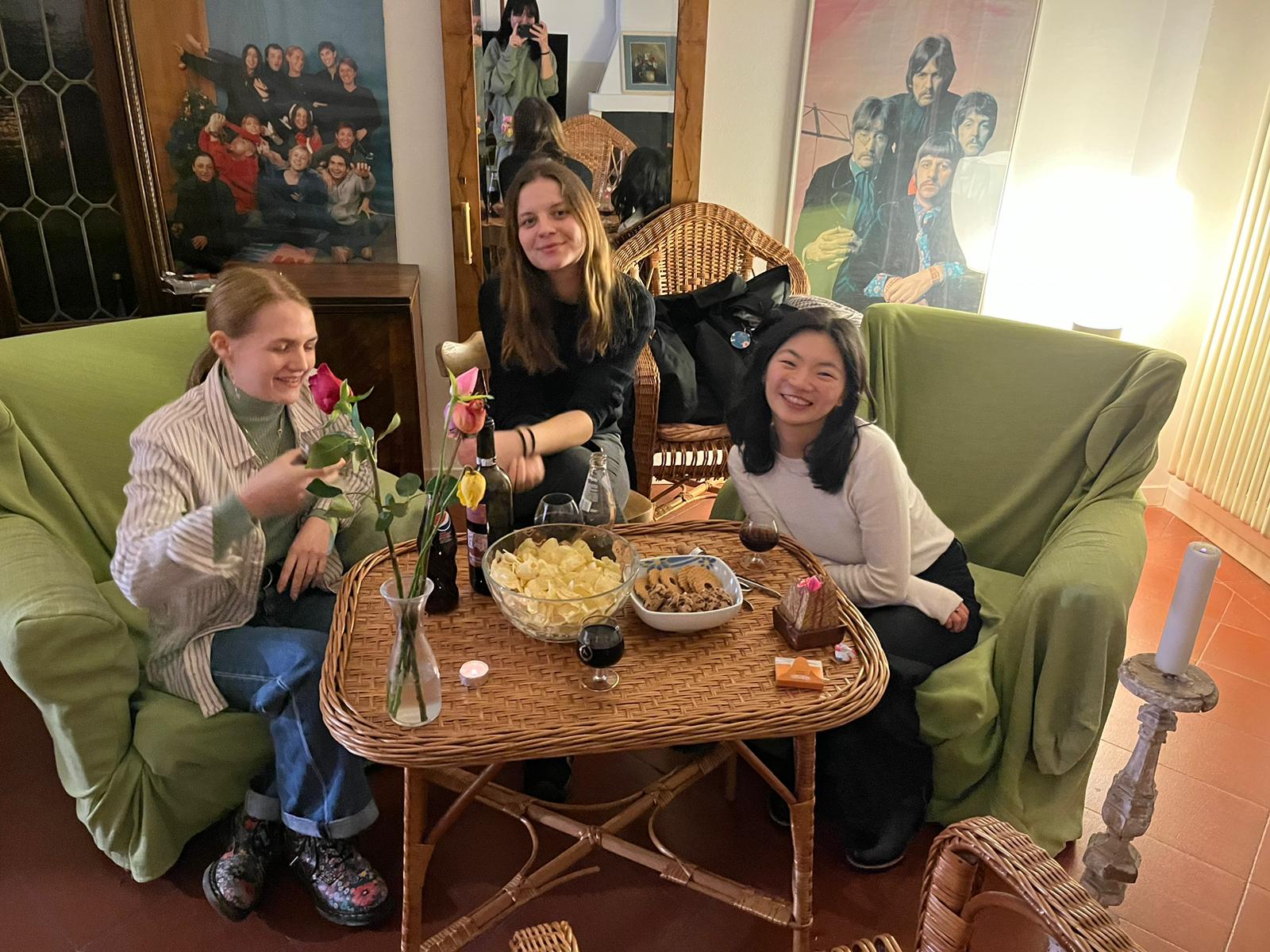
Extra facts:
-
- If you see one raindrop, you see the whole street walking with umbrella’s. Italians really don’t like rain.
- They eat late.
- In restaurants it’s normal to have coperto. It’s a fixed cover charge between one and three euros (for the services so to say). I really like this because it means it’s not expected to give tips (this is kind of included in the coperto already). For espresso a lot of people order at the bar, and drink it there, without sitting. In this way, you avoid paying coperto.
- Italians are not big breakfast people.
- Expect not to always to have a toilet seat.
- The stores are closed between 13:00 and 16:00.
- You can pay almost everywhere by card.
- Piadina (popular in Emilia-Romagn) is often eaten without knife and fork, use napkins instead.
- A lot of restaurants allow you to use the toilet without obligatory ordering food or drinks (really like this, very nice!)
- The stereotype that everyone says ‘ciao’ is true. Also common, men yelling at you ‘ciao bella’, which is actually pretty cute and doesn’t feel like catcalling, it’s meant to be friendly and nice, nothing more.
- Be warned: not a lot of other kitchens, especially the Italian kitchen. There are some sushi places, Greek restaurants, and maybe some Chinese restaurants, but expect no more.
Could you give a general price indication of the place of residence compared to living in Wageningen?
Rent price: 250-550 euros per month. It is quite similar with Wageningen. My room was 400 euros per month (everything included).
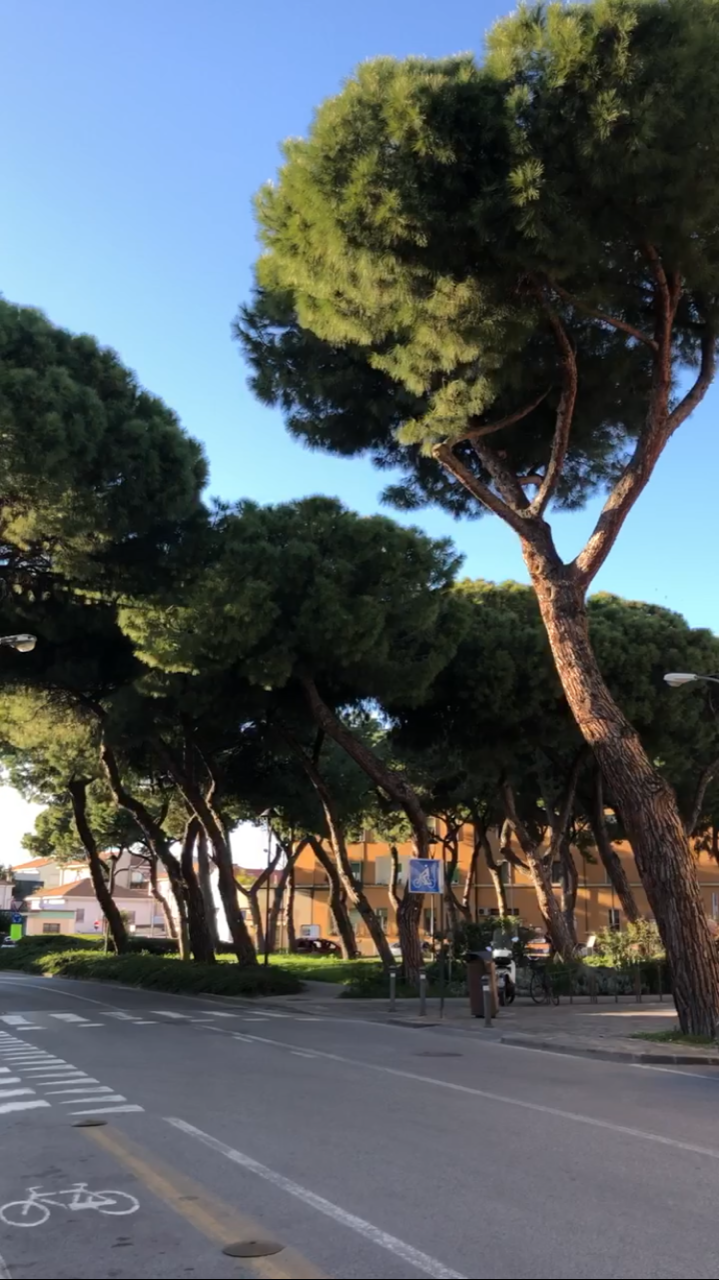
Could you give some information about public transport infrastructure?
In Rimini itself: I would recommend buying a second-hand bike, just text in the ESN Rimini WhatsApp group. Everything in Rimini I did by bike or walking. Also, there are Lime scooters and bicycles, a lot of people use this as well.
To travel to others places outside Rimini: I always used the train. Rimini is very reachable and accessible. For trains, download: Trenitalia, here there are also promotion offers and discounts visible. Price: similar to the Netherlands. I really liked the trains, very modern as well! Note: always bring a sweater or scarf, it can get cold in trains due to air conditioning.
Infrastructure: pay attention to cars, they are crazy. There are no rules for parking, a lot of cars just park somewhere in the streets or sidewalk. There are bike lanes but sometimes they just end, and you need to continue on the car street or sidewalk.
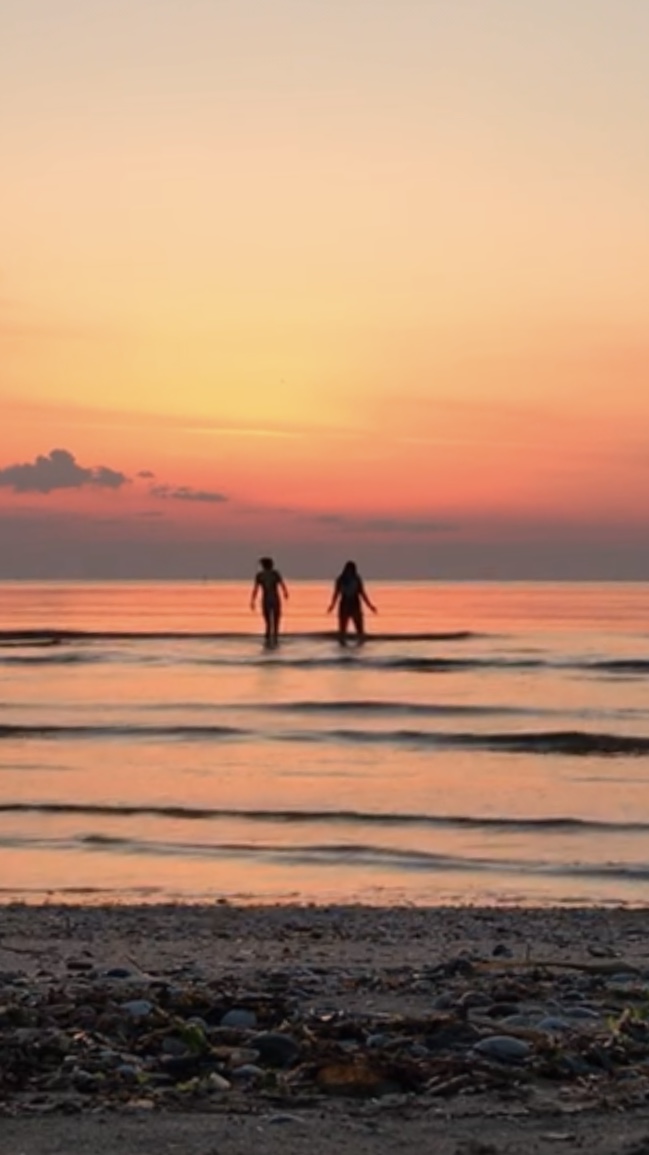
6. Free time
What are must-sees in the area?
Bologna, obviously! A very nice student city, probably one of my favourites. Other places I went to:
-
- San Marino (by bus)
- Ravenna (by train)
- Riccione (metromare Rimini, it’s a trolley bus alongside the coast)
- Ancona (by train)
- Brisighella (by train. Very small village, but cute)
- Verona (by train)
- Napoli (with ESN by train)
- Genova (together with Cinque Terre and La Spezia. By train)
- Lecce (in the south. By train).
- Florence (by train).
- Perugia (together with Assisi and Spello. By train).
Personally I really liked the province: Tuscany and Umbria. Also, I recommend exploring the province of Rimini as well: Emilie-Romagna.
Trips in Emilia-Romagna don’t have to be planned in advanced, this can just be day trips. I really liked those day trips!
Big cities: don’t go there too late in the year (I recommend before June). When it’s very hot, Rimini is the best place to be.
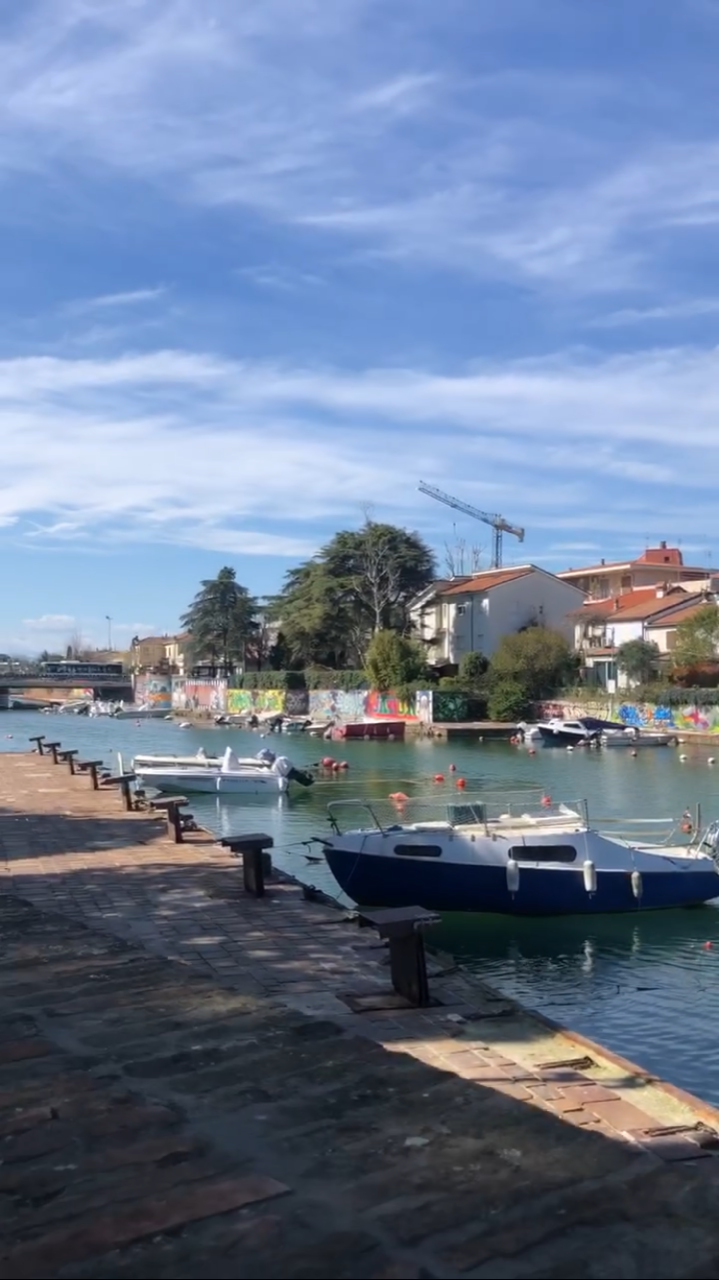
What does not appear in the travel guide, but is worth a visit?
There are really nice hikes to do around Rimini: Cattolica hike and Sorelle hike. There is a very big market between the train station and city centre on Wednesdays and Saturdays: 10-13h.
Do you have general tips and tricks about leisure time?
Pooh, where do I start? It surprised me but Rimini has a lot of nice and cute cafés, restaurants, and shops. My favourites for coffee and pastries:
-
- Cafe Vecchi
- Caffe Ducale
- Naked
Aperitivo/drinks:
-
- Naif
- Primo Bacio
Dinner:
-
- The whole area next to ‘Ponte di Tiberio’ (the side of San Giuliano Mare).
In winter, to go out (more bars for drinks + talking):
-
- The old fish market
- Riccione (for dancing)
- Coconuts (for dancing)
In the summer:
-
- Nettuno (rooftop party every Sunday evening)
- Coconuts
- Actually a lot of parties near the beach.
Ice cream:
-
- Gelateria la Romana
- Gelateria La Balena
Best sunsets:
-
- Rockisland Rimini
- Darsena
- Ponte di Tiberio
Overall, I know Rimini is most known for the beach but I high recommend exploring the historical city centre, it has a lot of more nice cafes, restaurants than I mentioned above. Also a lot of cute shops, and some museums.
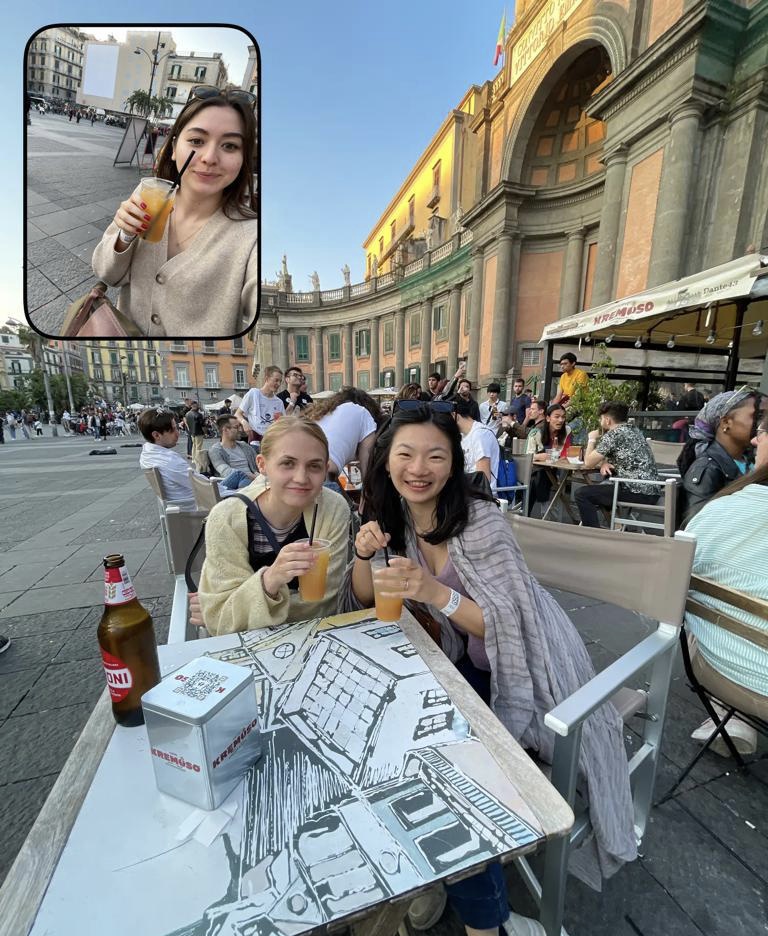
7. Challenges & best moment abroad
What was a challenge you have experienced?
At the beginning everything is a first, so everything takes a bit more time than normally; going to do groceries, going to university, the city centre, buying train tickets etc. This is actually no an huge problem since you also have a lot of time to discover it all. Also, because everything you experience is new and unfamiliar, I was very tired the first week of arrival.
What was your best memory abroad?
I don’t have one particular memory. I just really liked the freedom, no stress, and spontaneous lifestyle. I enjoyed my daily life a lot, every day was so relaxed. In short my whole life for 5 months was: coffee, strolling around, ice cream, going out for dinner here, drinks there, some dancing, aperitivos, picnics, beach, sunsets, yoga, day trips, weekend trips.
8. Contact Details
Would you like to ask Anne-Ying more questions about her exchange? Send her a mail: anne-ying.telders@wur.nl

